The alternate canon of "great Australian films" |
|
Fun Radio First film by legendary indie filmmaker in Australia, Nigel Buesst. As a collage of pop culture sounds and images, Fun Radio is irrepressible and joyous. As good as Bruce Conner collages of the time, Buesst simultaneously critiques and revels in the pop excesses of surf music, radio jocks, crazy competitions, creating a transcendental film that dances with the joy of cinema itself. DVD of the film for purchase at Artfilms. See Nigel Buesst's profile at Melbourne Indie Filmmakers website. Read an interview with Nigel Buesst on Senses of Cinema. |
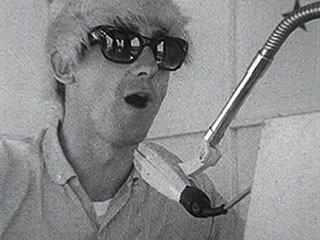 |
Clay Italian migrant Mangiamele, after some shorts as an indie filmmaker in Carlton, bursts through with his debut feature, and it gets selected for Cannes. "The intensity of Mangiamele’s breathtaking vision recalls the work of Jean Cocteau and other French romantic poet/filmmakers." (Ronin Films DVD notes). “Clay is a film of singular visual beauty, there is a poetry in the treatment, tact and sensitiveness in the direction”. (The Australian newspaper, 1965.) Clips can be seen at the NFSA website. Press clippings at Melb Indie Filmmakers site. Tributes by Scott Murray and Quentin Turnour. |
 |
Boobs a Lot From the UBU stable of narrative-smashing Sydney filmmakers in the '60s, Aggy Read's music-clip film startled at the Sydney Film Festival on premiere and was then promptly banned by the Australian censors for 18 months. A collage of breasts, set to the Fugs song of the same name, it has "an air of innocent purity", as Arthur Cantrill once said. You can see the film here. It is also part of Artfilms' great DVD compilation of UBU films. Check out a video intro to UBU here. Read Peter Mudie's obituary of the director here. And don't forget Mudie's great book on the UBU gang. |
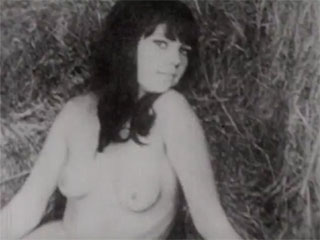 |
Marinetti From the Sydney UBU Group again (see Boobs a Lot, above), this is the legendary Albie Thoms' debut feature, a tour-de-force of experimental cinema (a la '60s of course), which caused mass walk-outs at its big premiere screening in Sydney in a commercial cinema (not at the film festival). "The film is a distilled concentrate of lysergic impression, a sacrament of celluloid metaphysics." - Jim Knox. See the film here. Read tributes to Thoms by Philippe Mora and Tina Kaufman and Graham Shirley and Peter Mudie. See also a video put together by Peter Mudie in 2017 on Thoms and Marinetti. |
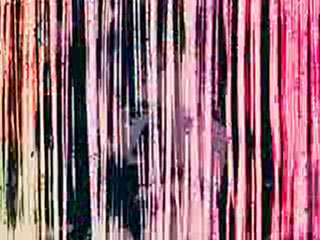 |
George & Needles In the line-up of great Australian realist films of the '70s (see entries following), this short student film, nominally a documentary, is the most in-your-face and "gritty" realist film you will see. It's powerful and unforgettable. "It's a ground-breaker, venturing into the dark, slovenly lives of a couple of outsiders." - Nigel Buesst (see reference below). Nominated for this canon by Paul Harris. See the whole film on You Tube. Read Nigel Buesst's thoughts on the film in this Senses of Cinema interview with Nigel. The film mentioned in this essay. What director Greg Dee is doing now. |
 |
Yackety Yack Visiting Canadian academic Dave Jones makes his only film in Australia, a classic of self-reflexive / parodic / mockumentary cinema about the act of filmmaking, starring John Flaus in his "early, intellectual" phase! Somewhat "B-grade" perhaps, it's still a unique, bizarre and entertaining film. "Disarmingly free of pretension, Jones' film is a sheer delight." - David Stratton. Excerpts from the film are in Nigel Buesst's doco Carlton + Godard = Cinema. Read Bruce Hodsdon's great essay "The Carlton Ripple". Info about the film in the Oz Movies website. A review on Cinephilia. |
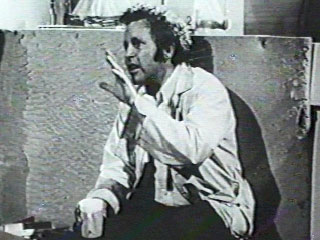 |
Pure Shit (aka Pure S.) One of the most unclassifiable of Australian films, a rollicking heroin narrative, B-grade yet still clearly with artistic integrity. No subsequent drug film in Australia has been able to match its energy, wit, humour, or sheer joie de vivre. Reviled by many, it's also been celebrated by many, with a great recent (2009) DVD release. "The most kinetic Australian film ever made." - Rolf de Heer. See the trailer here. See filmmaker Jon Hewitt raving about it. Read an interview with director Bert Deling. Read reviews by Luke Buckmaster and Peter Galvin. Great pages on the film at NFSA and Oz Movies. |
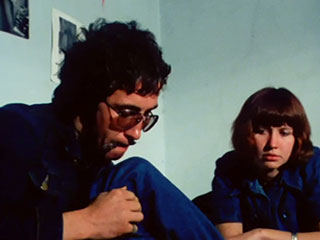 |
Brick Wall One of Australia's touchstone structuralist experimental films, Brick Wall has a genius concept, as it practically mirrors the act of brick-laying, causing us to re-think what the cinema can do through representation. Furthermore, beyond the reality shown, the film goes to a place of mystery and beauty. One of John Flaus' very favourite Australian films (along with Pure Shit, above.) Buy it at Artfilms. (Artfilms also have an interview with Winkler.) Also available at Canandian Filmmakers Distribution Centre and Revoir. Read John Flaus' appreciation of the art of Paul Winkler. |
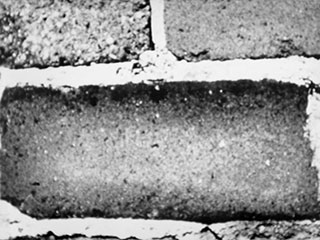 |
The Mystical Rose Micheal Lee's stunning early masterpiece, before revisi(ti)ng the terrain with some later works. Coinciding with the great flowering of cultural life in Australia in the mid '70s, Lee explodes his spiritual and sexual self, utilising real footage mixed with animation, impressionism with surrealism, music with reflection, to create a great subversive work bursting with life, humour and movement. Call it hippy, call it transcendental, it's a sublime expression of awakened self. Read a great analysis of Michael Lee's work by Dirk de Bruyn. Read the profile for Michael Lee at Melb Indie Filmmakers website. |
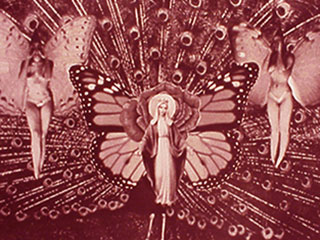 |
We Aim to Please The first clear, direct feminist activist film from the Sydney women's film movement of the '70s, Laurie and Nash use themselves as performers to smash open the key feminist concepts of the male gaze and the empowerment of women and their bodies. It's simple perhaps, but a real call to arms, and completely ground-breaking - feminism these days is PC-patsy compared to this dynamite of a film. See the page for the film on Margot Nash's website. See two clips from the film on NFSA website. Read a great overview of the film by Susan Lambert. Read an essay by Mary Tomsic on the film. |
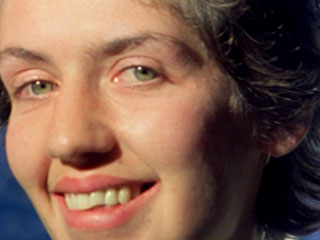 |
Queensland A great example of down-beat everyday realism, of struggling ordinary people. Made by the then student John Ruane (who went on to make Death in Brunswick and other films), this also set the template for the "hour-long" indie films that existed in Australian cinema for the next 20 years or so. The actor John Flaus would also continue to work on student productions after this one as well, generously. Watch the entire film on You Tube. Great info about the film on Oz Movies website. An appreciation of the iconic John Flaus in Senses of Cinema. Video interview with actor and director in 2016. |
 |
The Love Letters from Teralba Road Another great classic realist film (there were a few in the '70s), from under-rated mainstream director Stephen Wallace, gearing up for his feature career. Bryan Brown and Kris McQuade shine in this tender, troubled tale of an estranged couple, the narrative carried by read letters. Photographed by Tom Cowan, Pure Shit's lensman, showing his affinity for ordinary people and real life scenes. Watch half the film on Vimeo. And some clips on the NFSA website. As usual, great info on the making of the film, on Oz Movies website. Read an appreciation of the film on Senses of Cinema. |
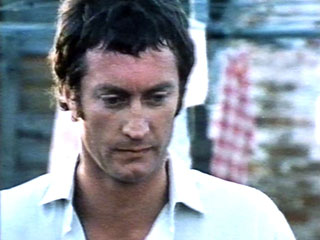 |
Maidens Multi-faceted feminist film: a photographic history of Australian women, an autobiography of the Thornley family, an essay film with excerpts from other mid '70s films. A classic of reflection, re-assessment, and re-configuration, as we start from the kernel question (what is a female?) and we reach expanded vistas of female agency: family connections, yes, but also personal empowerment. Watch three clips on the NFSA website. Visit Jeni Thornley's website. The blog within the site is great. Read an analysis of Thornley's work. Watch the video of Thornley on a feminist panel from 2015. |
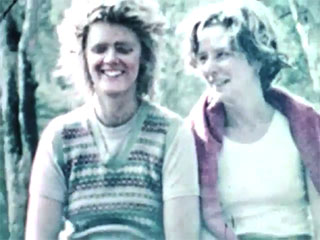 |
Palm Beach Yet another classic '70s realist cum experimental film featuring Bryan Brown and John Flaus. But this time directed by the Ubu legend Albie Thoms, confidently trying his hand at a full-blown narrative, with actors, but doing it his way - part Godard, part Altman, the film is an exhilarating melange of characters, actions, sounds and moods. As an "experimental narrative", it stands supreme in Australian cinema. Watch the trailer on You Tube. Watch three clips on the NFSA website. Great info, including reviews, on Oz Movies. Buy the film for uni students on Artfilms. |
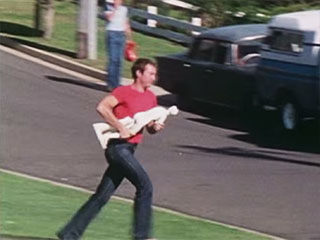 |
Journey to the End of Night Indie filmmaker from the early '60s, Peter Tammer reaches the prime of his filmmaking in the '80s, with a series of astonishing films, including this singular documentary of a war veteran recalling the horrors of his time as a soldier. A rigorous method from the director, as the subject is allowed to practically hallucinate the past, narrating his visions as he stares into space. Needless to say, haunting. Watch an excerpt on You Tube. Read info about the film on Peter Tammer's website. Buy it from Artfilms for uni students. See it listed on a page of 10 best Australian docos ever. |
 |
Square Bashing A new generation of filmmakers, born in the late '50s, begins here, with the Sydney Super-8 scene of the '80s. Found footage techniques dominated, which the filmmakers dubbed "Metaphysical TV". A "post-modern" cinema was born. This is a "surprising and astonishing" work, according to Mark Titmarsh. It's certainly as strong as the found footage films of Martin Arnold and others in later years. See the film here. Read Mark Titmarsh's overview of Metaphysical TV. Read a profile of the director on Scanlines website. Read an interview with two Sydney Super-8 filmmakers in RealTime. |
 |
Cine-Romance The Melbourne Super-8 scene had two waves, the first one being roughly 1978-1983, and the second one 1983-2000. (There is a third wave currently, in the late 2010s.) Like the Sydney crew, the first wave of Melbourne Super-8ers were post-modern deconstructionalists, but favouring live figures. Artist Juan Davila and future Greek film star Vangelis Mourikis pose in this "cinematic inversion of the photo-romance" (according to the filmmakers). A dynamic little film. See the film here. Read a profile of Rolando Caputo's work in the early '80s on Scanlines. Read a blog entry about Cine-Romance and Davila. |
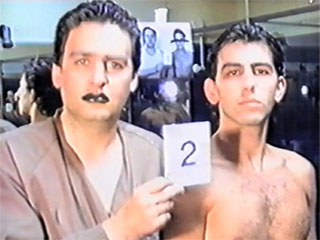 |
Man of Flowers Art auteur cinema, Australian-style. Or, almost, as Cox, like Mangiamele who also cracked Cannes, was a migrant. Yes, this film played in Cannes and elsewhere, and it's probably the sharpest of Cox's works, with a great performance by Norman Kaye as a troubled soul. Cox's oeuvre is inconsistent, but he was a determined and productive filmmaker, a unique presence in the Australian film landscape. Watch an excerpt on You Tube. See three other clips. Great info, as usual, on the Oz Movies site. An analysis of the film's connection to art, on Senses of Cinema. IMDb page. |
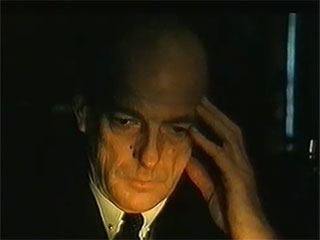 |
Dance of Death Dennis Tupicoff is one of Australia's premiere animators, with work like His Mother's Voice (1997) and Chainsaw (2007) being inventive, mature and moving. As a younger man, he threw this cheeky molotov at us, a satire of game shows, featuring Death himself dealing things out! The humour is black beyond belief, yet how prescient is the film, as we witness deaths aplenty in the media these days? Watch several clips from the film on director Tupicoff's website. See profile of Tupicoff on Melb Indie Film website. See an interview with Tupicoff on OzAnimate site. |
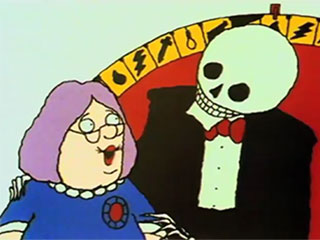 |
Dreams Never End The Sydney Super-8 scene of the '80s and also the Melbourne Super-8 scene of 1978-1983 were intellectual, post-modern scenes. Dreams Never End (one of Mousoulis' first Super-8 films) caused a sensation upon its unveiling in 1984, with its extreme naivety (like a "cinema naif" in a way). It played in over 30 festivals at the time. "A classic" - Adrian Martin. "An intense ethereal quality" - Andrew Preston. Listed in Mark Titmarsh's list of the best Super-8 films of all time in Limit of Maps. See the page on Dreams Never End on Mousoulis' website. Read Mousoulis' recollections of the '80s Super-8 scene on Desist. |
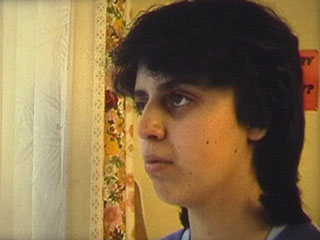 |
Gerry Gee Jnr. Another Melbourne Super-8 classic (see the entry above for Dreams Never End), Gerry Gee Jnr. is a subversion of the "doll genre" that existed with Super-8 films in the '80s. Director Matthew Rees takes the idea of anthropomorphisation of the dolls to a new level, as our hero is cruelly rejected by his father and also his creator (Ron Blaskett in a great cameo). A quirky and deeply moving film. Read a profile of Matthew Rees on Melb Indie Film site. See the film My Brother Gerry which references Gerry Gee Jnr. See Matthew Rees (at the 3:00 mark) at a Gerry Gee auction! |
 |
Passionless Moments When a cinephile in provincial Greece raves to you about this film, you know it's had good "international reach"! At the time, Campion seemed so fresh and quirky, and this short student work holds up very well when looked at today. It is arguably Campion's best film, its realism cum fantasy cum irony cum gentleness still disarming and charming. Quite possibly the jewel of all AFTRS student work. See the whole film here. Purchase through Ronin. Read a review on Senses of Cinema. Great info on the Oz Movies website. Info and clips at the NFSA website. The film on IMDb. |
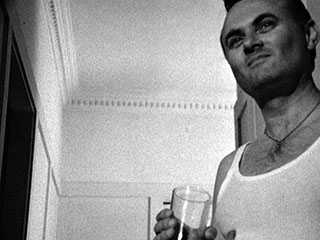 |
Serious Undertakings A radical, ground-breaking film at the time, even if only in intellectual circles shall we say. It brought the essay form to feminist thematics, but it also broadened its analysis past feminism, to culture, ideology, meaning. A dry but fascinating cinema experience, it is a strong, determined and politically-charged work, and, if you update a few topics, still highly relevant today. See the film on Vimeo. Read Susan Lambert's notes on the film on NFSA website. See the Film/Video section of Helen Grace's website. Analysis of the film in the book Don't Shoot Darling. |
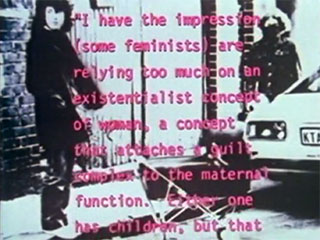 |
Waterfall In a huge body of experimental film work, some Cantrill films stand out, and this is one of them. "This illusion of condensed time, synthetically produced by the three-colour separation technique of shooting three apparently similar scenes and printing them together, for me secures a Romantic ideal of Cinema as a laboratory, a factory where experimentation is lovingly practised and celebrated." - Vikki Riley. A beautiful appreciation of the film by Michael Koller in Senses of Cinema. The Cantrills profile on Melb Indie Film site. Long-time Cantrills supporter Jake Wilson on the Cantrills in Senses of Cinema. |
 |
In This Life's Body A singular aberration from Arthur and Corinne Cantrill's experimental film practice (see entry for Waterfall above), this film is Corinne's extraordiary testimony of her life, its breadth and depth, its highs and lows. As an autobiography primarily using photographs, and Corinne's voice-over narration, it has the rigour of their experimental work, but is also intensely personal and revealing. Read Freda Freiberg's appreciation in Senses of Cinema. Read a great interview with the Cantrills. Program notes for Cinema Reborn, screening May 2018 in Sydney. |
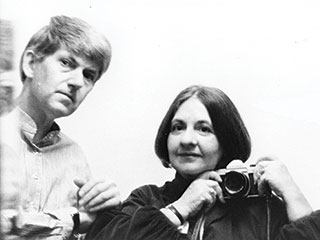 |
Light Play Like the Cantrills (see entry for Waterfall, above), Dirk de Bruyn has produced many experimental film works, over a long career, making it hard to pluck out any individual titles. Light Play is from a fruitful "Direct on Film" series from the mid-'80s, where de Bruyn drew and scratched on the film itself, creating a furious animation of colours and shapes which are surprisingly light and beautiful. Hire the film through Light Cone. An appreciation of de Bruyn's films by Steven Ball on Mike Holboom's website. Profile of de Bruyn on Melbourne Indie Filmmakers website. |
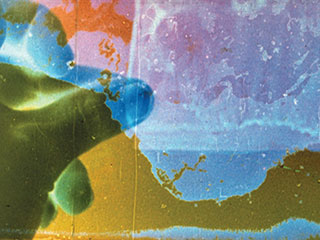 |
Obsession Legendary Melbourne indie film icon (teacher, advocate, writer) with his masterpiece (in a stop-start career as a filmmaker), a work made over several years. A dynamic B&W collage about engines, movement, light - in other words, "cinema"! Also features Anna Kannava with a searing voice-over. "Rarely has the death-loving thrall of driving been rendered with such kinetic allure." - Marie Craven. Stills, quotes, festivals for the film. A profile of Cumming at Melbourne Indie Filmmakers site. Review of Artist Film Workshop retrospective screening. Check Cumming's book on filmmaker John Hughes. |
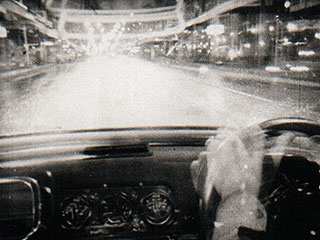 |
Dogs in Space A "crossover" film at the very worst, Dogs in Space has enough cred to be listed here, simply from the evidence: Lowenstein is a bona fide indie director (refusing to go mainstream at any point); the film's style is a great non-narrative collage of different elements (inspired by Pure Shit no doubt); and the film also respected the more alternative musics of the scene it wished to represent. A pleasurable film experience! Watch the official trailer. Visit the IMDb page. Reviews: David Nichols in Senses of Cinema; Nichols again with Sophie Perillo in The Conversation; Luke Buckmaster. Peter Galvin SBS interview. |
 |
My Life Without Steve A bold Australian indie classic, its clear design executed perfectly. An apartment by Sydney harbour, a woman's musings (on voice-over), like a "diary film" I guess, and just images of the inner (the decor), the outer (the harbour), and the "outer in the inner" (photos). Part psychoanalysis, part emotional ache; part essay film, part meditation; part feminist film, part humanist. Sensual and transcendental. See some clips on the NFSA website. Available to view/purchase through Ronin. Read John Hughes' great review of it on Senses of Cinema. Check the director's Vimeo page. |
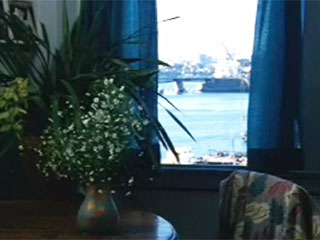 |
Nice Coloured Girls The Aboriginal artist Tracey Moffatt burst onto the art and cinema scenes in the '80s, carving out a career in both fields. This film has more energy than her later, more stylised, works. But the mix of realism and artifice works well in this film, along with the mix of history and the present, creating an intelligent, provocative film, as it assays its race and ideology politics. See the whole film here. See the entry for the film on the NFSA site. Read an analysis of the film on Senses of Cinema. Read Adrian Martin's review of the film on his site. |
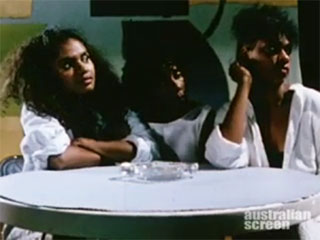 |
Ghosts… of the Civil Dead John Hillcoat is a fine director, and, this, his debut feature, was scorching upon its first release. Yes, a film set in prison is not cosy subject matter anyway, but Hillcoat gets extraordinary, edgy performances and visuals and sounds from his collaborators. "The most powerful film ever made in Australia." - Andrew Urban, The Age. Nominated for this canon by Michael Campi. See the trailer for the film. The IMDb page. The film's website. Luke Buckmaster's Guardian review. Thomas Caldwell's critique in Senses of Cinema. And Ina Bertrand's in the same journal. |
 |
Words and Silk: The Imaginary and Real Worlds of Gerald Murnane Sadly one of Tyndall's few films, and one that has been forgotten somewhat. The Mebourne International Film Festival refused it a 25th anniversary screening in 2014. Upon release, it drew great praise, from critics and festivals. It is a splendid essay-documentary on a distinctive writer. It has a style both rigorous and joyful. Read Adrian Martin's review of the film on his website. Read the director's notes on his filmmaking practice on Melb Indie Film site. Read a literature fan on Gerald Murnane's work. |
 |
Return Home Legend indie DOP in the '80s, Ray Argall, made his debut feature as director in 1990 (the first of only two features alas, as director) with this classic of "ordinary people's lives". It was the central performance of Dennis Coard in particular that marked the film as special, a magically soulful understated performance, full of grace and humility. It's a crime that Argall hasn't made more films. See the trailer on You Tube. See three clips on NFSA website. A video interview with Ray Argall. Read an analysis by Adrian Danks on Senses of Cinema. Thorough info on the film on Oz Movies website. |
 |
The Illustrated Auschwitz Jackie Farkas, mainly a cinematographer, made this incredible film (at the same time as the equally incredible Amelia Rose Towers) as a student, before then abandoning any career in directing. Found footage, shot on Super 8, intermingles with the voice over of a Holocaust survivor. The combination is experimental, but haunting and profound. Nominated for this canon by Adrian Danks. See the entire film on Vimeo. (See Amelia Rose Towers also.) Read Adrian Martin's review. Read Karli Lukas' analysis on Senses of Cinema. Also Stephanie Tell in Screening the Past. |
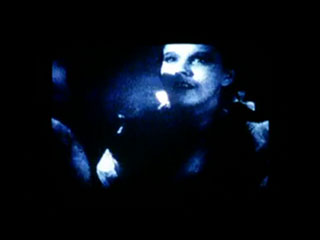 |
Body Melt A unique Australian film - a horror-essay film funded at the highest level (kudos Australian Film Commission and Film Victoria!), directed by the multi-media artist and theorist Philip Brophy. Suburbia goes haywire (Hollywood eat your heart out), in this hilarious spoof splatter film, with great cameos by many known TV actors. A great Blu-Ray restoration done in 2017. Watch the whole film here. See the trailer on You Tube. Check the IMDb page, with many user reviews. Read Adrian Martin's review. Director Phil Brophy discusses his film. |
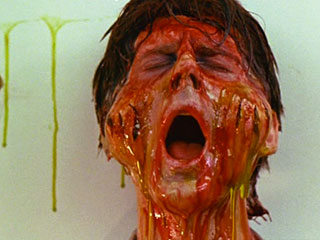 |
Thread of Voice Arf Arf are a great experimental vocal group, comprising Michael Buckley, Marcus Bergner, Frank Lovece (now deceased) and Marisa Stirpe. Most of them are experimental filmmakers also, and this film combines all these talents, film, animation, voice, song. It is a collection and document of their content and style, obviously, but the film also stands as something whole and concrete in itself, a beautiful expression of life, movement, joy, pain, absurdity, connection. Watch an excerpt from the film on You Tube. Buy an Arf Arf DVD from Revoir. Read Adrian Martin's review of the film. |
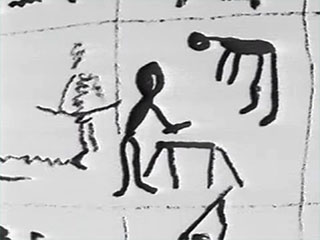 |
Bad Boy Bubby It was like a molotov when it first appeared, this Aussie Kaspar Hauser of a film. And it retains its power today, its rawness and blasphemy and humour. If we're talking narrative features, then de Heer must stand as not only a daring experimentalist (Dr. Plonk, Epsilon), but also just a great filmmaker (Ten Canoes, Charlie's Country). Bad Boy Bubby is both daring AND great. Watch the entire film on You Tube. Watch the trailer. Read a review on Senses of Cinema. Read a review on ACMI site. Read the info about the film on Oz Movies. Read an interview with de Heer. |
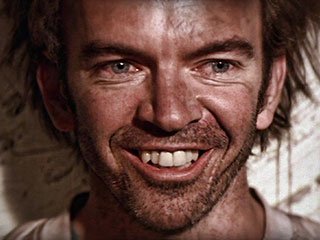 |
Eternity The intriguing and haunting story of a Sydney man who (in the 1930s) walked the streets at night, endlessly graffiti-ing the word "Eternity" on the pavement in chalk. Combining stylised recreations with more conventional talking heads, Johnston creates an instantly appealing film. "Dion Beebe’s crisp B&W lensing and Annette Davey’s sharp editing make this original film visually engrossing." - Variety review. Nominated for this canon by Michael Campi. The quoted (above) Variety review. SBS Movie Show interview with Johnston. See three clips on NFSA website. Read an interview. |
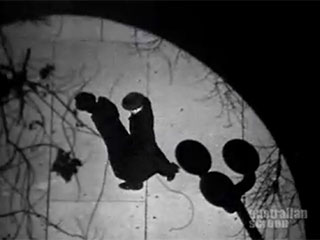 |
Love Serenade Miranda Otto was a great actress in the '90s, in her first phase, all awkwardness and innocence and joy. This vehicle was a quirky fit for her, but she shines nonetheless. The debut feature by Barrett (who has made only two more features since, including the brilliant Walk the Talk) is funny as hell, and beautifully surreal, in its small town setting with odd goings-on. Unique and pleasurable. See the trailer on You Tube. See some clips on NFSA website. Interview with Shirley Barrett at the time. Barrett looks back on the film. Barrett's website. The IMDb page. |
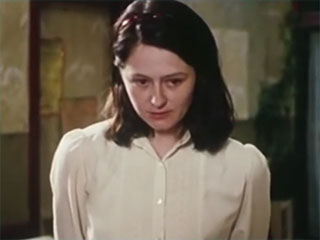 |
Road to Nhill Sue Brooks is one of Australia's most steadfast and true directors (even if Japanese Story backfired somewhat). Road to Nhill is laconic, subtle, wry, feminist, and another great tribute to the "ordinary people" of Australia (see Return Home above). As in Looking for Grace, Brooks has a magical touch in teasing out the emotions and tensions between people in this small-town classic. See some clips on NFSA website. David Stratton review. Adrian Martin review (a negative one). See Sue Brooks talking about the film. IMDb page for the film. Buy the DVD at Ronin Films. |
 |
The Butler Migrant from Cyprus as a teenager, this versatile Melbourne indie filmmaker was hampered by health issues in her adult life (dying at 51, in 2011) but her indomitable spirit saw her produce a number of great indie films, and two novels to boot! The Butler is her crowning achievement: a doco (about her brother Nino and herself) with dramatisations, it is inventive, personal, joyful and inspiring. Read George Kouvaros' great essay on The Butler and other Kannava films. Kannava's profile on Melb Indie Film site. Read obituaries in Sydney Morning Herald and IF Magazine. |
 |
The Boys Rowan Woods' modest but good career as a Super-8 filmmaker in the '80s was totally eclipsed by this conventional narrative feature when it came out in 1998. A down-beat masterpiece of Australian male tension and violence, thrusting David Wenham forward as an extraordinary acting talent, it is a powerful and worthy film. Woods has worked mainly in TV since then unfortunately. See the trailer on You Tube. See the IMDb page. Read some good reviews, on TimeOut, and The Guardian, and Cinema Australia website. See a video interview with director Woods from 1998. |
 |
Carlton + Godard = Cinema An act of love from one of Australia's top indie film heroes (and great filmmaker himself) Nigel Buesst, as he creates a document of Melbourne indie filmmaking from the '50s to early '70s, in the process also painting a bleak picture of contemporary indie filmmaking. Where else can we see these great films such as The Girlfriends or Brake Fluid? Large chunks here at least give us something! Bravo! See an excerpt on You Tube. Buy the DVD from Artfilms. The page for the film on Melb Indie Film website. Read Adrian Martin's review. Read an interview with Buesst on Senses of Cinema. |
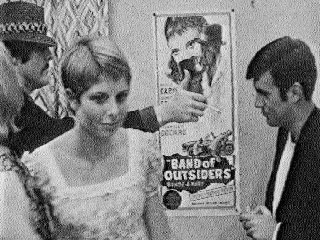 |
The Ghost Paintings The first of an astonishing series of four features from dexterous artist James Clayden in the mid 2000s. Impossible to categorise, apart from saying that the films are "experimental narratives". There are actors, there is abstraction, there are Godard-like abrupt montages, there is pictorial beauty, there is dread, disorientation, meditation. Some of the most unusual and exciting cinema Australia has produced. Read Adrian Martin's review of the film. See James Clayden's profile on Melb Indie Film site. Read an interview with Clayden from around the time of the film. |
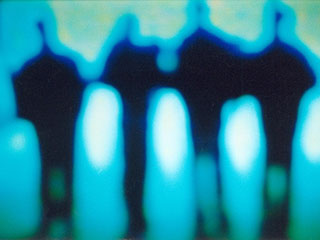 |
The Archive Project One of Australia's foremost political documentary filmmakers, and also creator of essay films and narrative features, John Hughes is a meticulous researcher and dogged film artist. The Archive Project sparkles with its abundant content and dazzling style, chronicling the organisation the Realist Film Unit in the '50s, and its run-ins with the Australian government. See the trailer on Vimeo. See three clips on NFSA website. Buy the DVD from Artfilms. Review of the film in Variety. See the film's page on Hughes' website. Hughes profile on Melb Indie Film site. |
 |
Ten Canoes Possibly the greatest film ever made in Australia, by possibly the only great director working in the mainstream industry. As the years go on, de Heer's career and standing rise. As an indigenous themed film with aspriations to authenticity, it succeeds beyond belief, with its language, structure, and content. It is educational, funny, adventurous and beautiful. An undisputed masterpiece. See the trailer on You Tube. Buy the DVD at Ronin Films. Check the IMDb page. And the Wiki page. Read reviews at World Socialist Web Site, and The Guardian, and the Sydney Morning Herald. |
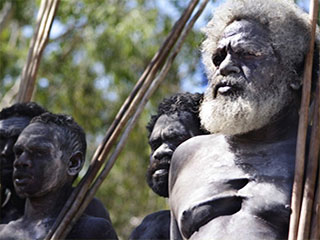 |
Konvent Genocide survivor from the Bosnian war, Salkic migrated to Australia and has now made a number of films in the past 10 years, all of them psycho-self-portraits, in experimental mode. Konvent has been recognised by several sources, so gets in the list here. In this film, Salkic is in Australian suburbia and "safe", but isolated, with ghosts, and inner pain. The form is minimalist, but intense, as we go into Salkic's "dark night of the soul". See the profile of Salkic on Melb Indie Film site. See Salkic's blog. Read a review by Max Le Cain. Hear an interview with Salkic. |
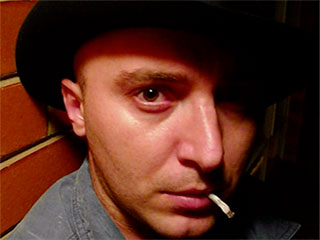 |
Hail Courtin-Wilson is an interesting figure in the Australian film landscape, obsessively working away at his visions, which shift in unexpected ways (producing different kinds of films, in different countries). This is perhaps his most conventional film, but it barnstormed its way into international film festivals, with its mix of documentary-like roughness and some abstract aesthetics. See the trailer on You Tube. The film's Vimeo page. Review by Adrian Martin. More reviews in The Australian and Hollywood Reporter. An interview with Courtin-Wilson. |
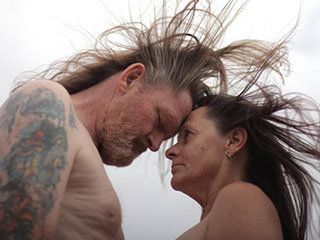 |
Bill Mousoulis is a Greek-Australian independent filmmaker since 1982, and occasional writer on film.
Upending the Canon by Ben Kooyman Obscure but worthy Australian films by Bill Mousoulis A Secret History of Australian Cinema by Adrian Martin |
|
This canon was first published on March 27, 2018, with 43 films listed, selected by Bill Mousoulis. A further 5 films were added on September 9, 2018: George & Needles (1972, nominated by Paul Harris), Obsession (1985, selected by Bill Mousoulis), Ghosts... of the Civil Dead (1988, nominated by Michael Campi), The Illustrated Auschwitz (1992, nominated by Adrian Danks) and Eternity (1994, nominated by Michael Campi). At the moment (September 2018), there are a total of 48 films listed. |
ENDNOTE (currently existing canons of Australian film) I am pretty certain that the Australian Film Institute had an "official" canon of 100 Great Australian Films published at some point, but I can't find any trace of it at the moment. Mind you, it was from around the turn of the century, so now out of date. Here are some canonical lists found online, which pretty much give the gist of what the "official Australian canon of great films" is like currently: The 100 Greatest Australian Films: Cinema Down Under by James Curnow, October 30, 2014. Ozflicks Guide to the Top 50 Australian Films, Ozfilcks, August 1, 2016. 25 best Australian movies ever, Stuff website, January 25, 2012. THE BEST AUSTRALIAN MOVIES EVER, by panerai, IMDb, September 29, 2012. And from Garry Gillard, two excellent lists, one a Top Ten, and the other a comprehensive list of numerous fine Australian films (constantly updated, so some recent films are in this list too). And, another list, from Bruce Hodsdon, his Best Ever Australian Films, which runs more like an "alternate canon" rather than a "conventional canon". (And this is practically the only "alternate canon of Aus films" I have found on the internet.) |
Published March 27, 2018. Revised September 9, 2018. © Bill Mousoulis 2018
|